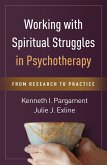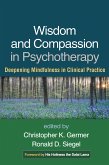From James L. Griffith, well known for his work on harnessing the healing potential of religion and spirituality, this book helps clinicians to intervene effectively in situations where religion is causing harm. Vivid examples illustrate how religious beliefs and practices may propel suicide, violence, self-neglect, or undue suffering in the face of medical or emotional challenges. Griffith also unravels the links between psychiatric illness and distorted religious experience. He demonstrates empathic, respectful ways to interview patients who disdain contact with mental health professionals, yet whose religious lives put themselves or others at risk. The book incorporates cutting-edge research on the psychology of religion and social neuroscience.
Dieser Download kann aus rechtlichen Gründen nur mit Rechnungsadresse in A, D ausgeliefert werden.
Es gelten unsere Allgemeinen Geschäftsbedingungen: www.buecher.de/agb
Impressum
www.buecher.de ist ein Shop der
buecher.de GmbH & Co. KG
Bürgermeister-Wegele-Str. 12,
86167 Augsburg
Amtsgericht Augsburg HRA 13309
Persönlich haftender Gesellschafter: buecher.de Verwaltungs GmbH
Amtsgericht Augsburg HRB 16890
Vertretungsberechtigte:
Günter Hilger, Geschäftsführer
Christian Sailer, Geschäftsführer
Sitz der Gesellschaft:Augsburg
Ust-IdNr. DE 204210010









